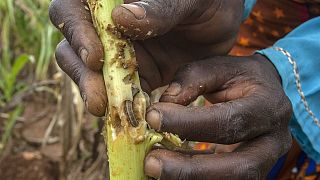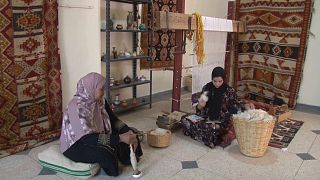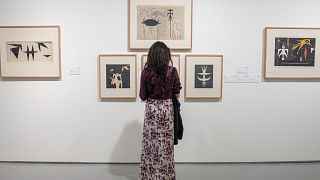Morocco
Moroccan farmers are turning to organic farming in increasing numbers.
Organic produce sells for 20% more than conventional farming equivalents and it's also better for the planet.
Chibane Allal is an independent organic farming expert. He provides us with an overview of organic farming in the country.
"It (organic agriculture, ed.) developed in Morocco from 4,000 hectares in 2010 to 12,000 hectares today (latest data from 2019, ed.), and in terms of production we have reached 120,000 tons, 21,000 tons are destined for export and the rest is marketed in the local market. It should also be noted that there is an important political will in this way and with regard to organic production development", he said.
Former sociologist turned organic farmer Fattouma Benabdenbi Djerrari owns eco farm Jnane Lakbir situated 20 km west of Casablanca.
"Seventy per cent of agriculture is small farmers who have less than five hectares, that means that we can support them a lot to go and develop this agriculture, there are people to do it, there is already know-how that we simply have to readjust, update and correct if necessary for sustainable agriculture, in any case all of Africa must move towards organic sustainable agriculture", said the farm owner.
The transition from conventional to organic farming takes three to four years before the first produce can meet organic standards.
This organic farmer explains why he decided to switch.
"I chose organic agriculture for several reasons including offering the consumer a clean product. And I no longer use chemical products and fertilisers, that's why I prefer organic agriculture" said organic farmer, Abdellah Laali.
The rise in organic farming goes hand in hand with the growth in organic fertilisers.
Pierre Galtier co-founded the company that makes organic fertilisers from insect excrement.
"We receive and collect waste, we feed it to our insects, we transform the frass (excrement, ed.) of these insects into fertiliser and we transform the insect into protein which can then be used for animal food and the fertiliser which will be used either for organic or conventional farming", concludes Galtier.
According to the Moroccan ministry of agriculture, organic farming totalled more than 1.4 million workdays in 2019.












02:08
Gunman attack in north-central Nigeria: death toll climbs to 150
11:14
Rwanda Walks Away: what’s behind the Central Africa rift? [Business Africa]
Go to video
World Bee Day: bees under threat, but solutions exist, report finds
Go to video
Indonesia hosts prestigious specialty coffee event for first time
01:58
Nigerian farmers struggle as climate change dries up water sources
00:53
Brazil eyes global food leadership amid U.S.-China trade tensions